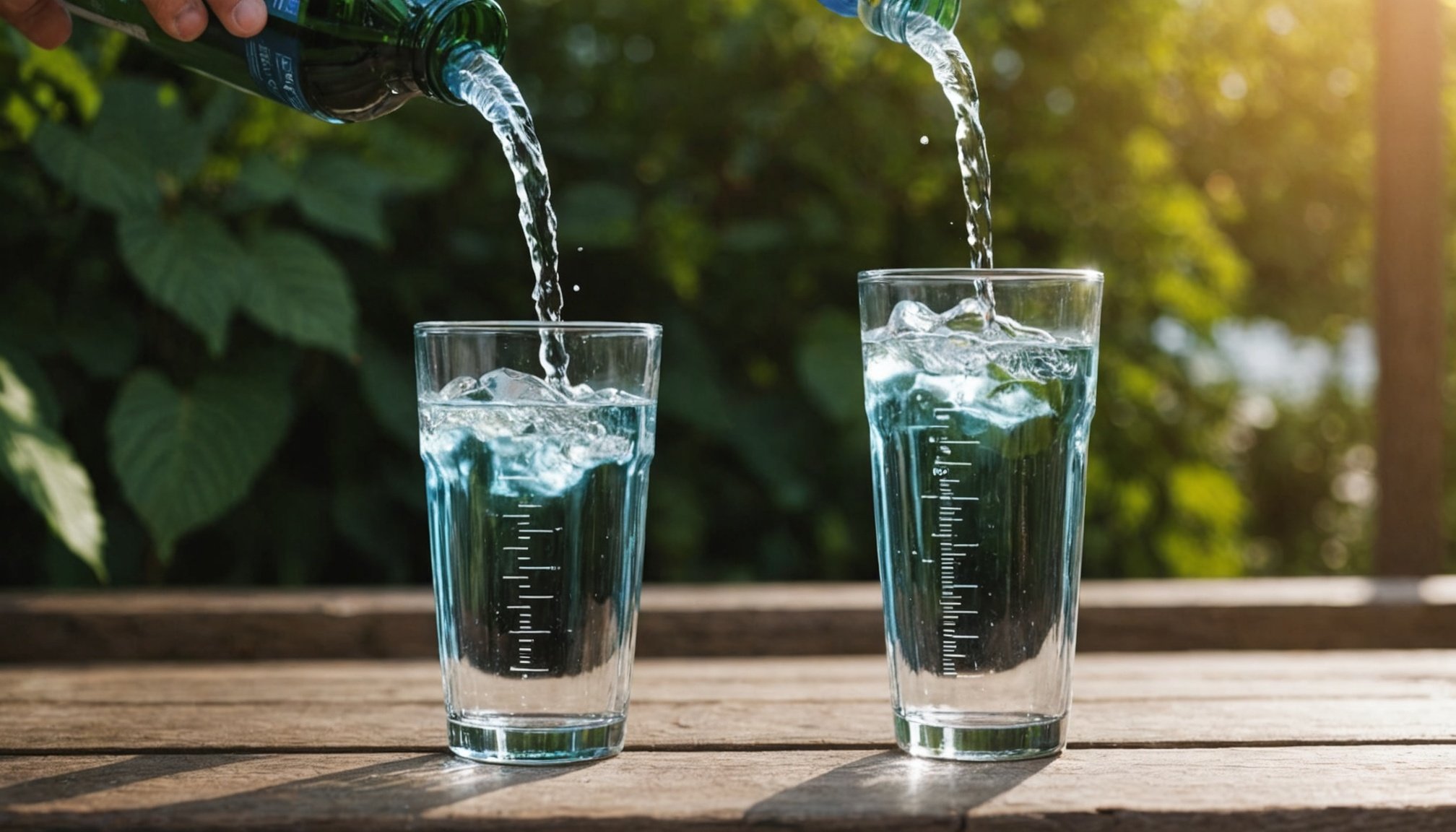Staying hydrated is fundamental to our health. Water is a vital nutrient that supports nearly every aspect of our bodily functions. Whether you are exercising, working in the office, or just going about your daily life, maintaining an adequate intake of fluids is crucial. Many people overlook the significance of hydration or are unsure about how much water they should truly be drinking each day. In this article, we will explore the essential role of hydration in our overall well-being and provide insights into how much water you really need to drink.
Understanding Hydration and Its Importance
Hydration refers to the process of maintaining an adequate amount of water in the body. Since our bodies are composed of approximately 60% water, staying hydrated is vital for optimal nutrition and functioning. Each day, we lose fluids through various means such as sweat, breathing, and urination. If these fluids are not replaced, the body can experience dehydration.
Also to discover : What are the benefits of group therapy, and how can it aid in the treatment of various mental health conditions?
Dehydration occurs when the loss of fluids exceeds intake. It can lead to serious health issues such as kidney stones, urinary tract infections, and even heat-related illnesses. The impact of dehydration is particularly concerning for children, the elderly, and those who engage in strenuous exercise. These groups are often more susceptible to the adverse effects of inadequate hydration.
The benefits of proper hydration are numerous. Water facilitates digestion, aids in nutrient absorption, and helps regulate body temperature. It also plays a crucial role in maintaining healthy skin, enhancing energy levels, and supporting cognitive function. When you remain well-hydrated, your body can better manage weight, reduce fatigue, and improve your mood.
In parallel : How can understanding your family’s medical history help you take charge of your health?
To sum up, understanding the importance of hydration is the first step toward promoting better health. It is essential to recognize that the body’s need for fluids varies based on factors such as exercise, climate, and individual health conditions.
How Much Water Should You Drink?
Determining the right amount of water for your individual needs can be complex, as it depends on various factors including age, activity level, and overall health. A common recommendation is to drink at least 8 eight-ounce glasses of water a day, totaling about 2 liters or half a gallon. However, this guideline doesn’t apply universally.
The National Academies of Sciences, Engineering, and Medicine suggests an adequate intake of fluids for men is about 3.7 liters (or 13 cups) and for women, about 2.7 liters (or 9 cups) per day, which includes all beverages and food. It’s critical to note that fluid requirements can increase with physical activity or in hot weather when you lose more fluids through sweat.
While water is the best source of hydration, other beverages and foods also contribute. Fruits and vegetables, for instance, contain a significant amount of water and can help maintain your hydration. Foods like cucumbers, oranges, and watermelon are excellent choices. Moreover, herbal teas and milk can also count towards your daily fluid intake.
You might also consider your lifestyle and dietary habits when determining your fluid needs. If your diet is high in protein, you may need additional water to help your kidneys process the increased nitrogen waste. Similarly, if you consume a lot of caffeine or alcohol, which can have a diuretic effect, you may need to drink more water to counteract fluid loss.
Being attentive to your body’s signals is vital. Thirst is a natural indicator that your body needs hydration. Additionally, the color of your urine can serve as a reliable gauge: light yellow typically indicates proper hydration, while dark yellow suggests a need for more fluids.
Signs of Dehydration to Watch For
Recognizing the signs of dehydration is key to maintaining your health. Common symptoms include fatigue, dizziness, dry mouth, and headaches. In more severe cases, dehydration can lead to rapid heart rate, confusion, and even fainting.
One of the first indicators of dehydration is increased thirst. If you find yourself reaching for a drink more frequently, it’s a signal from your body that you may need to increase your fluid intake. Alongside thirst, dry skin can also be a symptom. When your skin lacks moisture, it may lose elasticity and appear dull.
Other signs to monitor include changes in urination. If you notice that you are urinating less frequently or that your urine is darker in color, this may be an indication that you need to drink more water. In children, the signs can be less obvious, so parents should be mindful of their kids’ energy levels and overall behavior, as irritability and lethargy can be associated with inadequate hydration.
It’s worth noting that certain conditions, such as fever, diarrhea, or vomiting, can increase the risk of dehydration. During these times, it is critical to replenish lost fluids and electrolytes. Simple clear fluids are typically recommended to replace what has been lost.
In summary, being aware of the signs of dehydration can help you take proactive steps to maintain proper hydration. By listening to your body and recognizing these symptoms, you can ensure that you are drinking enough fluids to support your overall health.
Hydration Strategies for Daily Life
Integrating effective hydration strategies into your daily routine can make a significant difference in your overall health. Here are some practical tips to ensure you stay well-hydrated throughout the day.
First, carry a reusable water bottle with you. Having water readily available serves as a reminder to drink regularly. Aim to refill your bottle several times a day, setting a personal goal based on your hydration needs.
Secondly, establish a routine for drinking water. For instance, drink a glass of water when you wake up in the morning, before each meal, and before going to bed. This habit can help you track your fluid intake more effectively.
Incorporating hydrating foods into your diet can also boost your overall fluid consumption. As mentioned earlier, fruits and vegetables are excellent sources of water. Snack on cucumbers, celery, strawberries, and tomatoes, which all have high water content, during the day.
Additionally, consider your physical activity levels. If you engage in exercise, particularly in hot weather, remember to drink extra fluids before, during, and after your workouts. Sports drinks can also be beneficial for replenishing electrolytes lost through sweat during prolonged exercise sessions.
Lastly, listen to your body and adapt your hydration strategies based on your environment and activity. If you are in a hot climate or if you have been more active than usual, you may need to increase your water intake. Keeping track of when you feel thirsty or fatigued can help you gauge your hydration needs effectively.
By implementing these hydration strategies, you can help ensure that your body remains well-hydrated and functions at its best.
In conclusion, hydration plays an essential role in maintaining overall health. By understanding the importance of water in our bodies and recognizing how much we should be drinking, you can take proactive measures to stay hydrated. Monitor the signs of dehydration, and implement effective hydration strategies in your daily life. Remember that adequate intake of fluids supports not only physical performance but also cognitive function, mood, and overall well-being. As you take steps to prioritize your hydration, you will likely notice improvements in your energy levels, skin health, and overall vitality. Make hydration a cornerstone of your daily routine, and invest in your health today.











